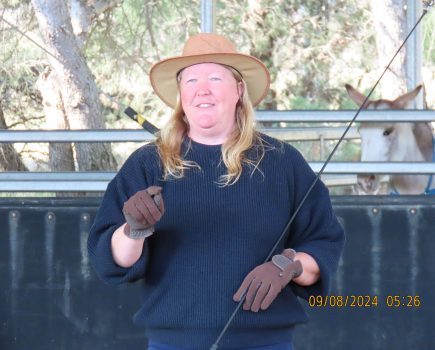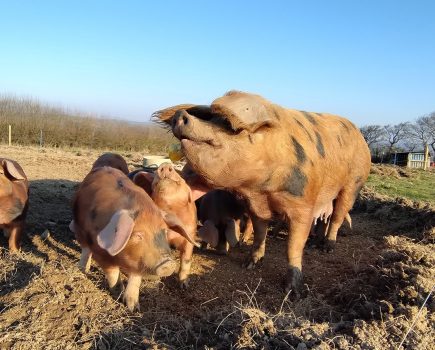A great new book about chickens includes a fascinating section about their emotional life. How To Speak Chicken is by Melissa Caughey. Here are some extracts…
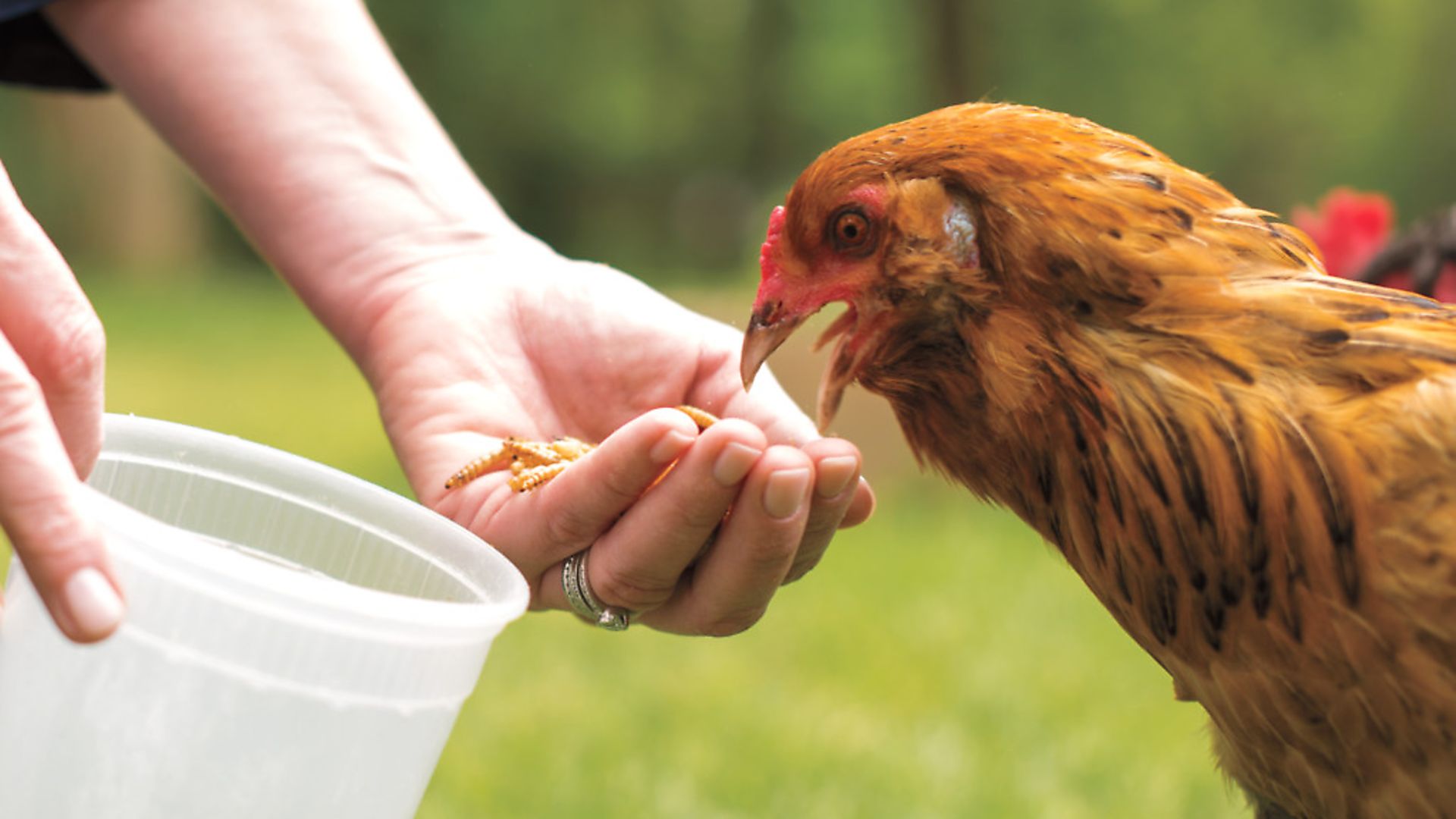
When we got our first backyard flock in 2010, it was a complete leap of faith for me and my family. We had never kept chickens and had no idea what was in store. Some people want chickens mainly for the eggs. We welcomed the eggs, but we were more interested in the chickens as pets and in the life lessons they could teach us. It didn’t take long for us to discover how wonderful keeping a flock could be. Perhaps what intrigued me the most was coming to realize that chickens have emotions, just like dogs and cats.
I’m embarrassed to admit it, but I was somewhat astounded.Call me a crazy chicken lady, but I have fallen in love with some of these girls. I like to think they love me, too.
They have become members of the family. When my family members and I are with them, our problems melt away. They make us laugh. They are silly, curious, and show moments of kindness.
They exhibit compassion to their flockmates, worry when others wander off too far, sleep together at night, accept those from different breeds, have tolerance for differences, live with one another’s unique quirks and personalities, and are amazingly resilient. I cannot imagine our lives without these wonderful companions in the yard and garden.
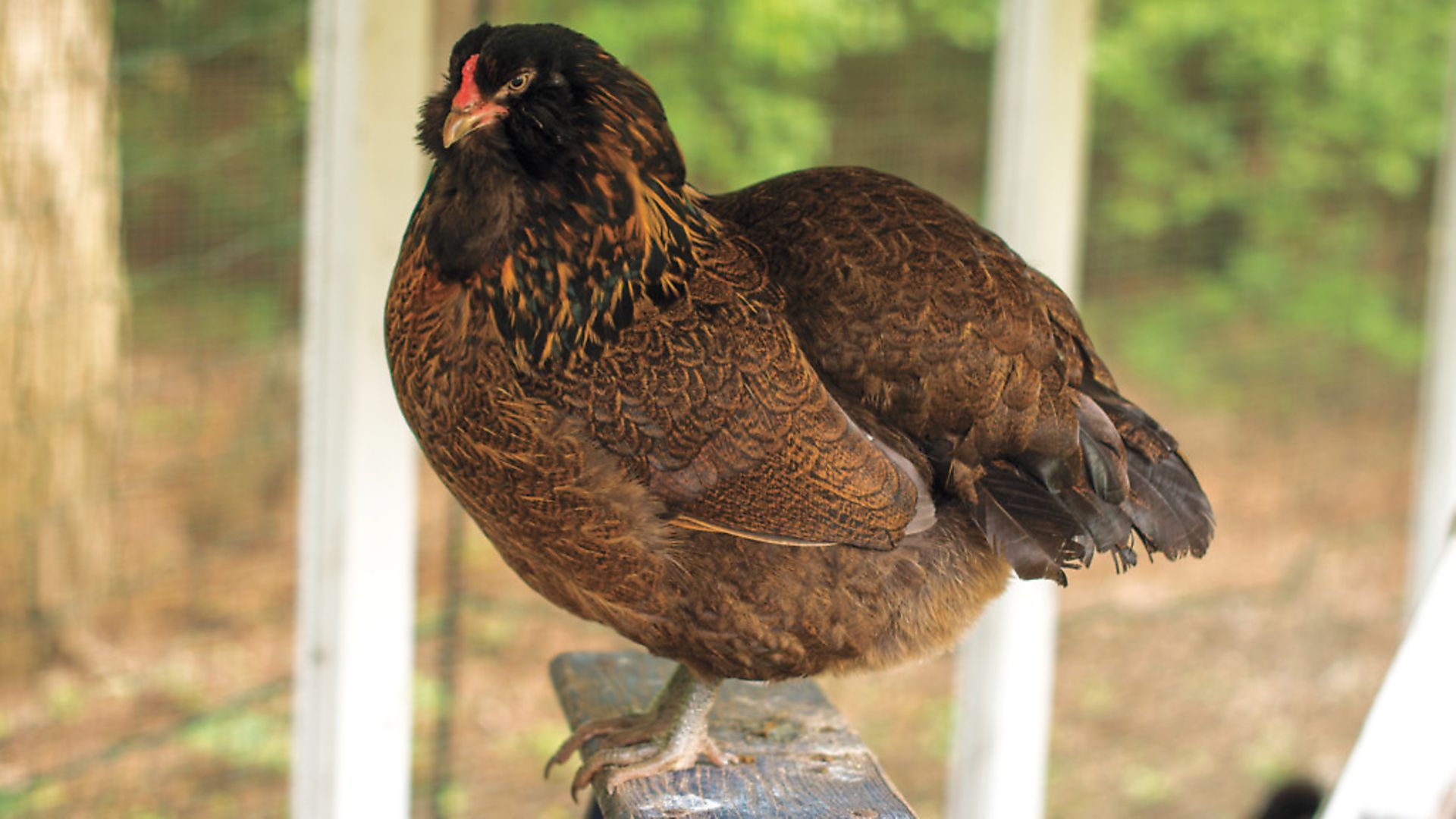
Rules of Attraction and Jealousy
Numerous social science studies are devoted to how and why people choose their mates in life. I’m fascinated that our degrees of attraction vary so immensely, and was intrigued to realize that the same goes for hens and roosters. Roosters do not mate evenly with all the available hens. They have their favourites, with whom they mate whenever they get the chance. And not all hens agree to mate with the rooster. It went that way for Oyster Cracker. Despite his best showstoppers, our rooster, Chocolate, never got to mate with her.
Now Dolly was another story.Dolly was a beautiful gray Silkie hen who seemed to be perpetually broody. Perhaps that was what attracted Chocolate, because Dolly quickly became his girl. They went everywhere and did everything together. He would tidbit just for her, dancing and sharing seeds, worms, and slugs with her. He even presented her with frogs and once, a small snake. He would proudly parade her around the run among the flock. It was intriguing to see how the entire flock, even Tilly, the head hen, yielded to Chocolate and Dolly as they paraded along.
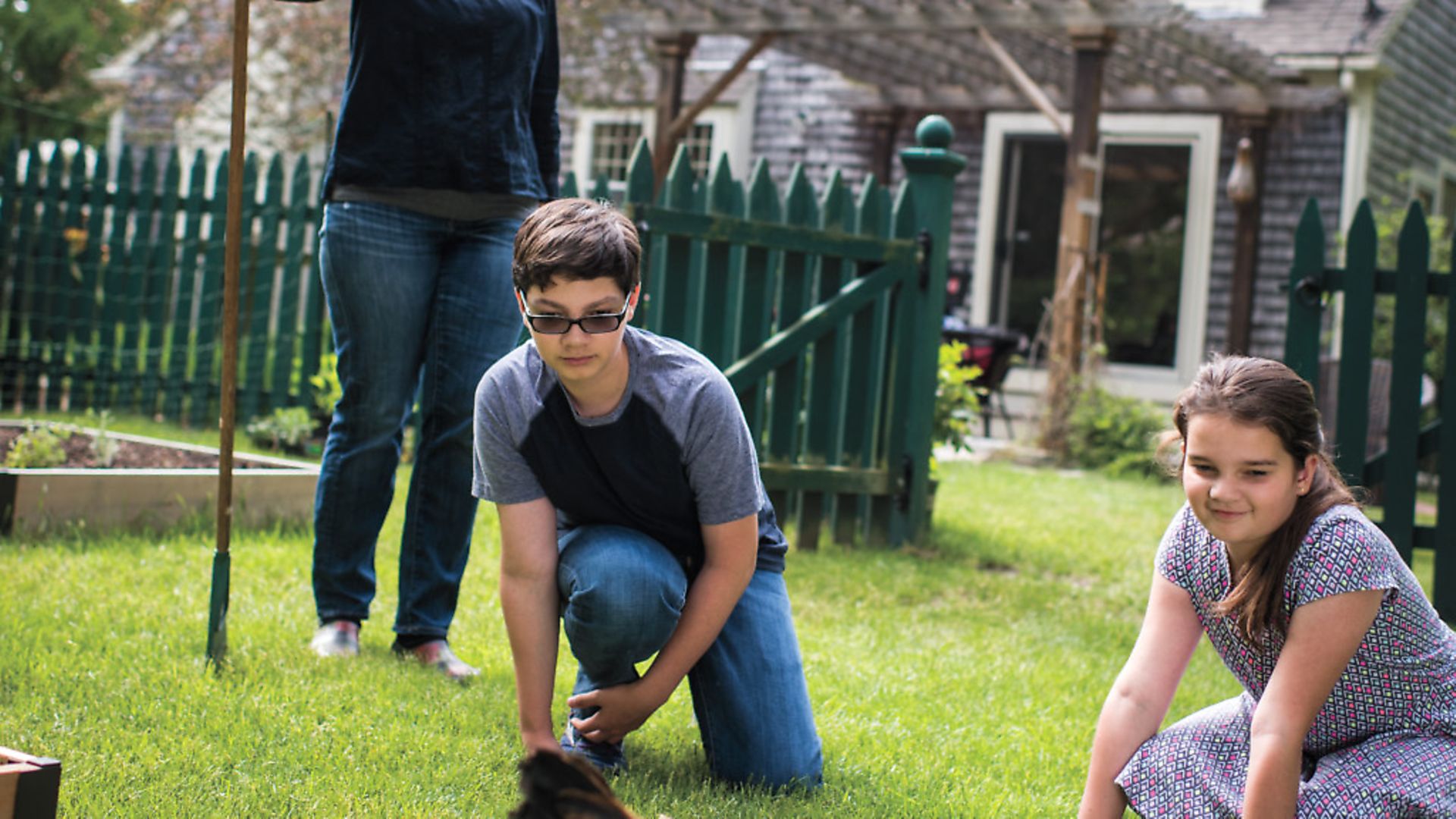
After we had to rehome Chocolate, it soon became apparent that Tilly was jealous of Dolly. With her protector gone, Dolly lost her privileges. Tilly placed her at the bottom of the pecking order, keeping her away from the feed, forbidding her from entering the coop at dusk until the very last minute, and kicking her out of the favorite nesting boxes. Eventually, Dolly seemed to just accept it and there were no more squabbles. Dolly remained in her new pecking-order place for the rest of her life.
Compassion
I have witnessed compassion from hens toward one another, specifically when a flock member is injured or ailing, or if they can’t find a member of the flock. They show their concern by visiting and trying to coax the ailing hen along. They call out for those that are missing. They cock their heads like dogs do, to listen and try to understand the situation.
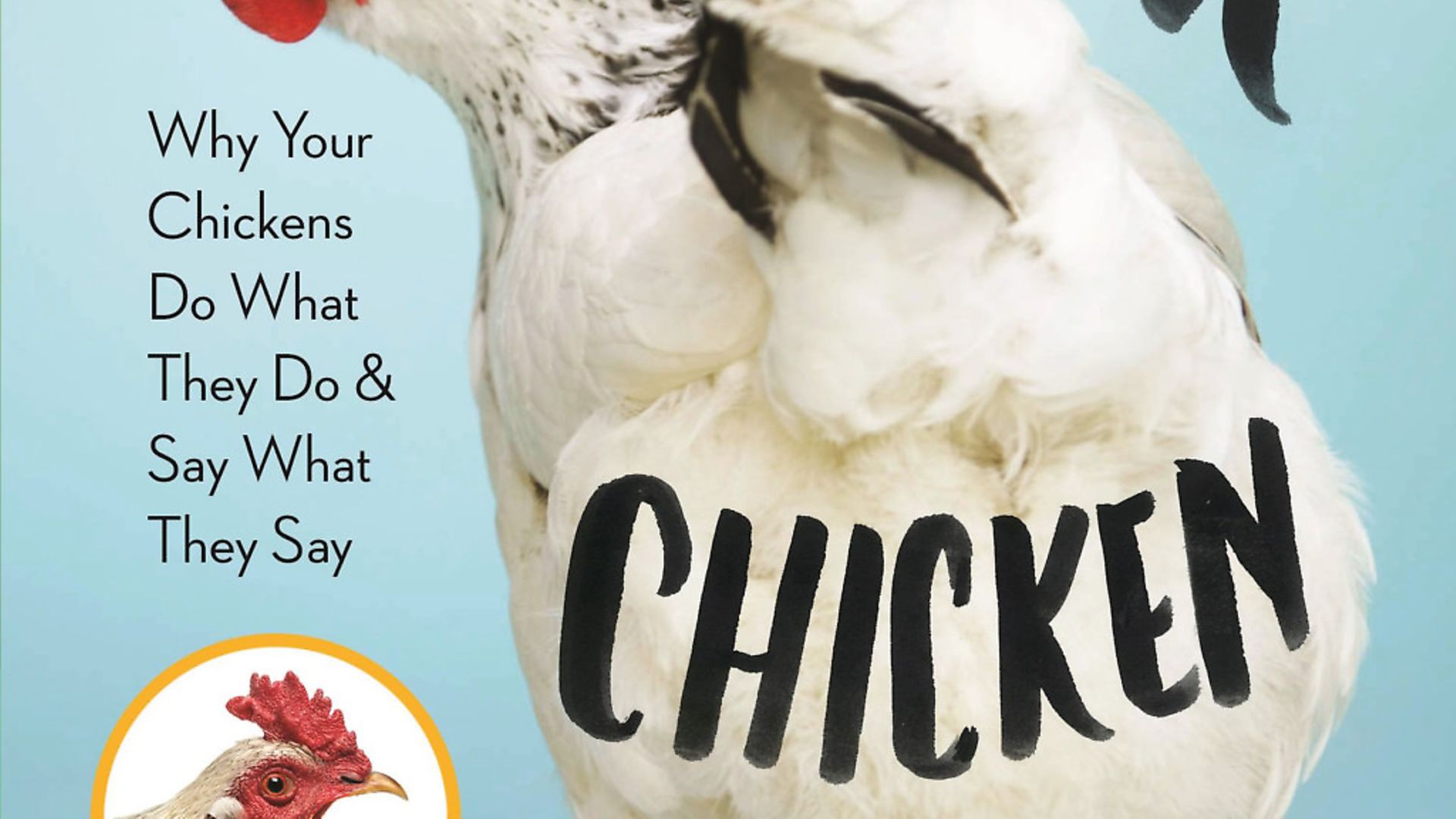
The compassion of chickens to those outside their flock can be pretty incredible, too. Chickens are increasingly being used as therapy pets. Some nursing homes keep flocks as a way to engage elderly patients, many of whom love to watch them or help take care of them. The hens may perch in residents’ laps or on top of their walkers and just sit quietly. Some chickens fall asleep, while others are content to observe the world around them. Having the birds around gives the residents something to talk about and focus on. The chickens have a special way of keeping them interested and making them feel needed.
In a strange way, chickens seem to know when you are feeling down or depressed. Spending time with the flock always seems to melt those feelings away. A few years ago, my son went through a very difficult time with bullying at school. He was only nine, but I could see how being bullied was taking over his world. On particularly difficult days, he would come home from school and forgo his afternoon snack to immediately go see the girls. He would hang out with them and tell them what was on his mind. They kept his secrets, and he told me that they made him feel better. I believe the chickens saved him that year and for that I’m grateful.
Excitement
One of my favourite things about living with chickens is that they have a hard time containing their excitement. No matter what the weather is, how they slept during the night, or what went on the day before, they greet each morning with a lust for life. Like little kernels of popcorn, they emerge through the pop door ready to spring into the day, full of energy and interested in everything. Just the prospect of a new day is enough for the chickens to become almost giddy with excitement. Of course, chickens get excited over specific things, too. My flock gets excited about me and the family. They come running when they see us. When I dig holes for new plants, they happily hop inside to take a dust bath or scratch at the dirt in search of a tasty worm or grub. An offering of fresh treats from the garden makes them squawk and chortle with anticipation and delight. I’m not sure who is having more fun, me or them!
* Excerpted from How to Speak Chicken © Melissa Caughey. Photos © Jared Leeds Used with permission from Storey Publishing.
ORDER A COPY
Readers can order copies of How to Speak Chicken for the special price of £11.99 (rrp £12.99) including free p&p in the UK mainland. To order, please contact EFC Bookshop on 01872 562327 www.efcbookshop.com quoting offer code SC418
Image(s) provided by:
Getty Images/iStockphoto
Archant
Archant
Archant




